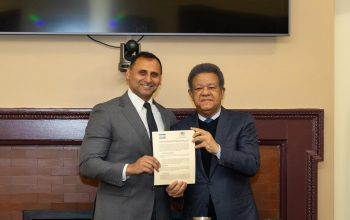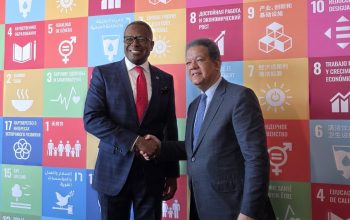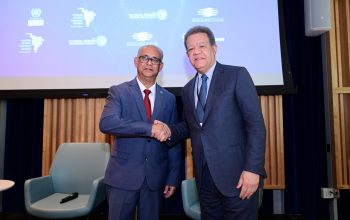news
“A Solid Local Business Base is Necessary to Improve Economic Development in the Dominican Republic,” Dr. Caraballo Cueto on Local Capacity Development
July 31, 2015
Dr. José G. Caraballo Cueto, who holds a PhD. in Economics from the New School for Social Research, spoke at the launch of the Fellows Program publication, “Capacidad local para beneficiarse de la globalización y aumentar el empleo: El caso de la República Dominicana.”
The Dominican Republic has not stimulated exports from its local sectors and has not created a solid local production base, both of which are necessary to
improve economic development in the country, explained Dr. José G. Caraballo Cueto, who holds a PhD. in Economics.
“One of the problems the Dominican Republic has had in advancing its economic development is an over-reliance on external sectors,” said Dr. Caraballo Cueto, a professor at the University of Puerto Rico.
Foreign capital should complement and not replace national capital, said Dr. Caraballo Cueto who is also director of
the Census Information Center (CIC) at the University of Puerto Rico. “Foreign production should link, complement, strengthen, and grow the local economy and not substitute it, which is what data on the Dominican Republic has reflected,” he added.
At the launch of his publication, “Capacidad local para beneficiarse de la globalización y aumentar el empleo: El caso de la República Dominicana,” (Local Capacity Development: The Key to Benefiting from Globalization and Reducing Unemployment in the Dominican Republic), Dr. Caraballo Cueto argued that even without a Free Trade
Agreement with Haiti, they are still the best trading partner for businesses in the Dominican capital.
Dr. Caraballo, who is a researcher in the Fellows Program of the Fundación Global Democracia y Desarrollo (Funglode) and the Global Foundation for Democracy and Development (GFDD), said it was important to promote local companies because they are the ones that create the most jobs.
“The State should promote not only growth but also
development and a way to do that is to promote local businesses.”
He stressed that the agricultural sector provides more jobs in the Dominican economy than tourism, mining, and free zones combined. “Agriculture should be viewed differently and new niches for it should be found.”
Frederic Emam-Zadé, director of the Economic Study Center at Funglode, and Fátima Portorreal, outstanding academic consultant and
socio-anthropological scholar, reviewed Caraballo’s work done with the Fundación Global Democracia y Desarrollo (Funglode) and Global Foundation for Democracy and Development (GFDD).
Christty Armand, coordinator of Corporate Relations for the Fellows Program and InterDom’s Dominican Global Academic Exchange (GDAE) moderated the event.
About the book: “Capacidad local para beneficiarse de la globalización y aumentar el
empleo: El caso de la República Dominicana”
This book is part of GFDD’s Research and Reflection series, which includes research work and papers, articles, speeches, and lectures on critical issues in the contemporary world from national, regional, and global points of view.
This publication examines unemployment, foreign investment, and trends in the trade balance in the Dominican Republic and its effect on the country’s
GDP growth, as well as participation of the Dominican Republic in the global economy.
The publication also calls on the government to promote the spirit of entrepreneurship and the creation of smaller and medium-sized local companies in order to increase production and exports, create jobs, and reduce price levels, thus encouraging re-investment back into the local economy.
The content of this publication was presented by its author Dr. José G.
Caraballo Cueto at a roundtable on October 17, 2013, the International Day for the Eradication of Poverty, at the headquarters of the United Nations (UN) in New York, following his participation in the Funglode/GFDD Fellows Program in the summer of 2012.







